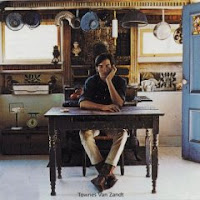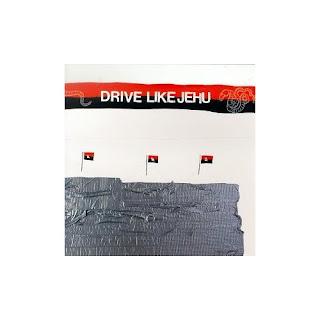 Genesis - "Pigeons"
Genesis - "Pigeons"In 1976 Genesis released Wind & Wuthering, and the following year they released the Spot the Pigeon EP to accomodate three W&W leftovers. These three songs, the band felt, were good songs that didn't quite belong on W&W. (Steve Hacket, however, thought that "Inside and Out" would have fit just fine. Disgruntled for this and other reasons, he left the band later in '77.) "Pigeons" is unlike any on W&W and indeed unlike any other Genesis song up to this point. Though embodying the band's characteristically dark undertones, it's almost numbingly simple and surprisingly bouncy. And, y'know, pigeons! And the killing of them! After perusing some album reviews I seem to be the only one who favors this song above the two others.
 Peter Gabriel - "Solsbury Hill"
Peter Gabriel - "Solsbury Hill"Gabriel left Genesis in 1975 and "Solsbury Hill" is about him making that difficult decision. The song is both cautious and hopeful, teetering between nostalgia and the unknown future, and the lyrics mesh perfectly with the outstanding use of instrumentation. Performed in 7/4 time (except for the "...I've come to take you home" parts, which are in 4/4) the song begins simply with a jangly acoustic guitar, a steady beat, and a shaker. But percussive elements and subtle harmonzing are gradually introduced until, at the onset of a triumphant electric guitar, things get celebratiously raucous.
It always slips my mind, but this is probably the best song ever made.
 Talking Heads - "Psycho Killer"
Talking Heads - "Psycho Killer"You all know this song, now go dance and speak French and serial kill.*
 Television - "Marquee Moon" (link from Poptartssucktoasted)
Television - "Marquee Moon" (link from Poptartssucktoasted)I like looong songs, and this one clocks in at 10:40 (though on the original vinyl release it was about a minute shorter). It's a full song, though, with elements of punk and prog and even jazz. Apparently it was recorded in one take, with the drummer not even aware that they were actually recording. But the band had been performing "Marquee Moon" for years, and by this point the dueling guitars and Tom Verlaine's warbly voice had been rehearsed to perfection.
 Bob Welch - "Sentimental Lady"
Bob Welch - "Sentimental Lady"This is 100% soft-rock fluff, which is fine as long as soft-rock fluff doesn't make up most of your music collection. Bob Welch (not to be confused with the 27-game winner of the same name) originally recorded this song as a member of Fleetwood Mac in 1972, then re-recorded it for his first solo album, French Kiss. Interestingly, for this newer version Mick Fleetwood is on drums, and Christine McVie and Lyndsey Buckingham do backup vocals. And though I'm not usually a fan of updated versions, I enjoy the French Kiss "Sentimental Lady" more than the Fleetwood Mac Bare Trees "Sentimental Lady".
Also, the 1970s were known for some particularly egregious album covers. I'll elaborate on this sometime in the future.
*Please do not actually commit any murders.











